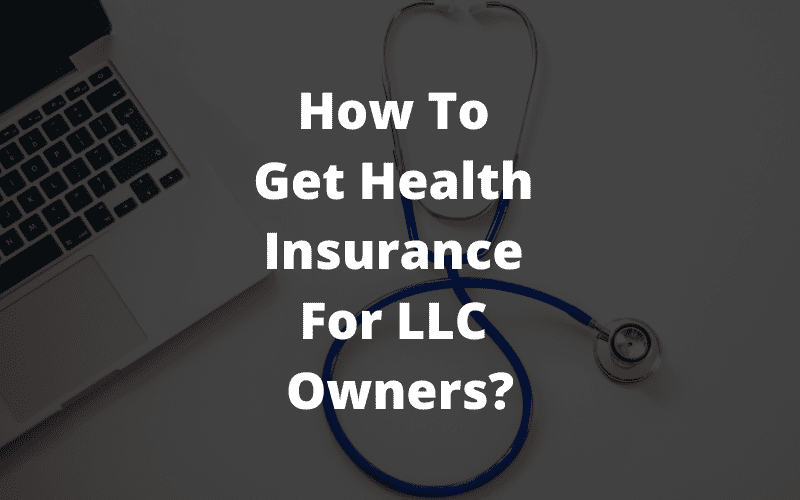If you have a small business, you need to have business health insurance for your workforce, especially for you as a business owner. Here are some ways to find affordable health insurance as an LLC owner.
LLC owners’ health insurance options
You can either purchase individual health insurance or be eligible for a group health insurance plan through your employer.
Individual health insurance
Since this option does not limit you to one provider, individual health insurance typically provides more flexibility and options than group plans, such as those offered by an LLC.
An individual plan can be the best option for you if you prefer having the flexibility to choose the hospital and doctor.

You should evaluate the benefits and drawbacks before choosing an individual health insurance plan because they can be costlier than group health insurance.
You should consider getting group health insurance through your LLC if you want to offer health insurance to your workforce. Compared to individual health plans, group health insurance could be a more cost-effective option.
Health insurance for groups
You might be eligible for the company’s group insurance plan if the business is a partnership with two or more owners, often known as “members.”
Compared with individual coverage, group health insurance offered by your LLC will give you more provider options and potential financial savings. Workers might need to pay a monthly premium to get covered under the plan.

The general rule for a sole proprietorship
Even if you don’t have any employees, you can still purchase individual health insurance as an LLC member or owner, but you often can’t receive small business health insurance or a group plan through your LLC.
You are likely a sole proprietor if your LLC has no other employees other than yourself. In this case, you would only be eligible for individual health insurance and not small business health insurance. Nevertheless, sole proprietorships with one more employee apart from the business owner can frequently be eligible for group health coverage.
How to choose the right plan for you?
Finding the ideal plan for you requires some research into your choices.
What are the tax implications of a health plan?
The eligibility for a health insurance LLC deduction relies on whether it is a claim for LLC members or non-member employees, the LLC’s legal and tax status, and whether it is categorized as a sole proprietorship, partnership, or corporation.
LLC with One Single Member Taxed as a Sole Proprietorship
Your LLC will be taxed as a sole proprietorship or self-employed if you are the only member. One drawback of paying taxes as a sole proprietorship or as a self-employed person is that you cannot claim health insurance costs as a company expense.
LLC with Multiple Members Taxed as a Partnership or S Corp
You will be taxed as a partnership or S corporation if your LLC has multiple owners or members. It indicates that your individual income tax return will be affected by the company’s profits and losses.
An LLC Taxed as a Corporation
Your options for a health plan will be considerably more restricted and generally more expensive if your company is being taxed as a corporation. Also, failing to purchase health insurance as a small business owner will cost you.
A corporation with a specific tax status may have access to different health insurance plans, but an LLC can still get coverage.

Consult a small business insurance expert or acquire legal counsel to learn more about your options for health insurance.
Key Takeaways
FAQs
A business with 50+ full-time employees must provide health insurance. You might not be subject to this federal law if you employ less than 50 people.
Regardless of the size of your company, some states like Hawaii may stipulate that you provide health insurance. You will need to stay updated about the state and federal-level laws regulating small business health insurance.
With an LLC, you can deduct the insurance expense for yourself, your spouse, and any dependent family members. If an individual is eligible for a group health plan through their employment, they will not be covered by the LLC’s policy.
Your small business may qualify for health insurance if you are a business owner and have employees. You should check with your state to know what plans are available. You can then calculate the cost of providing insurance for both full- and part-time workers.
Small businesses need to review their requirements for employee health insurance policies. Giving employees access to insurance is frequently a significant perk that they value. Finding reasonable health insurance choices is essential if your company has 50 or more employees, especially if you want to pay some or all of the costs for staff members. Health insurance benefits all businesses, even those with fewer than 50 staff members, particularly when the workforce wants it.

